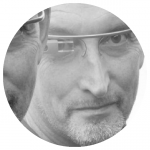PACTMAN: Trust, Privacy and Consent in Future Pervasive Environments
Call for Participants: TIPS by Design – Building a Community of UK TIPS Researchers – 2018
See programme details and how to sign up here.
As pervasive systems increasingly permeate everyday life, designing to aid data legibility, literacy, explainability and flexible decision-making is key. The widening gap between everyday users understanding of and the impermeability of black algorithmic boxes increasingly challenges current systems to ensure secure and private use for individuals, communities and publics. This symposium aims to tackle, debate and explore questions around the nature and implications of ethical, social and political perspectives for designing technologies. The topic of this symposium will explore issues of Trust, Identity, Privacy and Security (TIPS) in Technology from different contexts through design perspectives. Showcasing how researchers, designers and developers are tackling the increasingly big issues programmers and systems developers may face and how we design fair, ethical, unbiased, empowering systems at the outset of a new technological project.
This 2-day symposium on the 10th & 11th December in Edinburgh provides an exciting opportunity for PhD and early career researchers to connect with other TIPS researchers from across the country. Poster presentation and demo sessions will allow researchers to increase exposure to their research, while interactive workshops with leaders from diverse backgrounds will offer opportunities to learn about existing and novel tools and methods to support the design and development of future systems.
Talks and workshops will include:
- Privacy and designing for automated decisions
- Identity management for distributed services
- Voice controlled trust and security in the Internet of Things
- Social values in computing and ‘intelligence’ of AI
- Bias in system development and pervasive algorithms
Keynotes
“Privacy – Signs of a Golden Age?” – Marc Langheinrich
Marc Langheinrich is a Full Professor in the Faculty of Informatics at the Università della Svizzera italiana (USI) in Lugano, Switzerland. Marc received his PhD (Dr. sc. ETH) on the topic of “Privacy in Ubiquitous Computing” from the ETH Zurich, Switzerland, in 2005. Marc has published extensively on privacy aspects of ubiquitous and pervasive computing systems and is a regular program committee member of various conferences and workshops in the areas of pervasive computing, security and privacy, and usability. Marc currently serves as the Editor-in-Chief of IEEE Pervasive Computing Magazine, and is a Steering Committee member of the UbiComp and IoT conference series.

“Understanding Automated Decisions” – Georgina Bourke
Automated decisions are part of many services we use everyday, but how they work is rarely explained or understood. This matters because automated decisions have an impact at scale. For example, automated decisions within social media may only show people news from one side of a political argument. An automated system calculating insurance premiums could determine a less affluent area is high risk, increasing costs for people in that area. Decisions made by automated systems should be transparent, explainable and accountable. Technology studio IF, collaborated with researchers from London School of Economics to develop prototypes that show how to apply academic research to the way services are designed.

Georgina Bourke is a Designer at IF, who brings exceptional creative research skills to her design work. She is able to ask the right questions during user research to untangle the challenging perspectives people have towards privacy and security. Her design work articulates these findings in ways that tell a compelling story. Georgina’s work at IF ranges from leading projects to facilitating workshops and user research, where she draws on her previous experience at University of the Arts London.
Interactive Workshops
The event will feature a number of interactive workshops convened by experts in designing for trust, security and privacy. These include:
- “Trust me! I’m a Talking Donkey” – Joseph Lindley, Adrian Gradinar and Paul Coulton
- “PizzaBlock: A Blockchain Identity Management Workshop” – Chris Elsden and Jonathan Rankin
- “Alien AI and the Criterion of Intelligence” – Maria Angela Ferrario and Stephen Forshaw
- “Unbias: Exploring Fairness in Pervasive Environments” – Giles Lane
More workshop announcements to follow.
“Trust me! I’m a Talking Donkey” – Joseph Lindley, Adrian Gradinar and Prof. Paul Coulton
‘Talking Donkey’ – a neologism the critic Bruce Sterling uses to refer to voice user interfaces we use to operate Internet of Things devices in our homes. These ‘information appliances’ are the starting points for many of our interactions with so-called ‘smart’ devices. While they may appear physically indistinguishable from their ‘dumb’ counterparts, beneath the skin they collect and act on data to power and utilise AI systems; and through their interactions with each other have secretive social lives. The novelty of turning on the lights by interacting with a Talking Donkey may disguises the burden that this new brand of ‘smartness’ places on intuitive notions of trust and consent. Hence there is a need to refresh the patterns of intuition we employ, new conceptual frames to make sense of the ecosystems are devices are part of, not to mention not new ways of designing voice user interfaces. Building from more traditional interaction theory, this speculative and design fiction workshop will give participants the opportunity to probe possible Internet of Things ‘constellations’; explore the mechanisms that define our relationships with these devices; put their trust in a real-life simulated Talking Donkey; and develop insights about interface design for the Internet of Things.
Joseph Lindley is currently a Research Associate on the UK’s Cybersecurity for the Internet of Things Research Hub, focusing on issues relating to Adoption and Acceptability of domestic IoT devices. His doctoral thesis – ‘A Thesis About Design Fiction’ – addressed the field of Design Fiction and has helped to establish the practice as an cross-disciplinary and future-focused research approach.


Adrian Gradinar is a researcher and designer, whose main area of interest focuses on the intersection of the digital world we are constantly surrounded by and the physical one we actually reside in, especially how design and the practice of research through design are central to creating better experiences for everyone living in and experiencing this hybrid space.
Paul Coulton is the Chair of Speculative and Game Design in Imagination Lancaster and leads the Adoption and Acceptability stream for the UK Cybersecurity research hub PETRAS. He uses a research through design approach to creative fictional representations of future worlds in which emerging technologies have become mundane.

“PizzaBlock: A Blockchain Identity Management Workshop” – Chris Elsden and Jonathan Rankin
Decentralised or ’self-sovereign’ identity management has recently emerged as a potential blockchain use-case, in particular to grant individuals greater control over their personal data, and support verification of identity and certification. In this design-led workshop, we aim to unpack the core premises of blockchain-based identity management applications, and create space for participants to consider the implications of these systems in a range of domains. The workshop will be based around a co-operative game, where participants will play as either individuals or organisations acquiring, managing and verifying ‘pizza-making’ skills to each other, through a combination of blockchain-based artefacts and a distributed ledger.
Chris Elsden is a visiting post-doctoral researcher in Design Informatics at the University of Edinburgh; he is based in the School of Design at Northumbria University. Chris is an HCI researcher, with interests in the human experience of a data-driven life. He is currently working on the EPSRC-funded OxChain project, leading user-centred and speculative co-design activities with research partners to explore the future of philanthropy, digital civics and international development with the emergence of blockchain technologies.


Jonathan Rankin is a Designer working on the EPSRC funded OxChain project, in which he is explorating new models of philanthropy with the emergence of blockchain technologies. He has a background in design futures, having worked on projects involving a wide variety of future visions from robotics and data to the environment and romance, in both London and Tokyo. His work deals with personal interactions and as such frequently captures the imagination of the public, and has been featured in publications such as CNN, Time and Tech Crunch.
“Alien AI and the Criterion of Intelligence” – Maria Angela Ferrario and Stephen Forshaw
An Alien Intelligence has been discovered. As it happens, it is an Artificial form of Alien Intelligence emerged as a colony of spawn-like creatures. It is commonly accepted that entities exhibiting Artificial Intelligent (AI) characteristics can be described as intelligent agents, that is systems that perceive and act in some environment. However, being an Alien form of AI, the exact criterion for intelligence is difficult to establish and the environment of origin unknown. Our goal is to explore and specify this very criterion of intelligence and, from that, explore the potential attitudes and behaviour of Alien AI in a range of environments. This workshop is part of the Values in Computing (ViC) research programme and will be facilitated by Marie & Steve from Team ViC. ViC receives support from the EPRSC.
Maria Angela Ferrario is a Lecturer at the School of Computing and Communications (SCC), Lancaster University. Her professional and academic background includes computing, interaction design, social psychology and philosophy. She works at the intersection of software engineering (SE) and human computer interaction (HCI). Her research adopts agile and participatory methods to technology development, investigates human values in computing, and the role of digital technology in society.


Stephen Forshaw is a Research Associate, SCC, Lancaster. Stephen is a Fellow of The Royal Society of Arts. He has a diverse range of professional and academic experience including graphic and product design. Stephen, after a long career in the construction businesses, joined academia and completed his PhD research at the Highwire Doctoral Training Centre.
“UnBias: Fairness in Pervasive Environments” – Giles Lane
This session will use the the UnBias Fairness Toolkit to explore issues of fairness in pervasive environments, where explicit permission for data capture might not always be possible. The toolkit promotes awareness of algorithms, trust, bias and fairness and aims to stimulate a public civic dialogue about their role in our society. In particular, on how algorithms shape online experiences, influencing our everyday lives, and to reflect on how we want our future internet to be fair and free for all. The tools not only encourage critical thinking, but civic thinking – supporting a more collective approach to imagining the future as a contrast to the individual atomising effect that such technologies often cause. The toolkit has been developed by Giles Lane, with illustrations by Alice Angus and Exercises devised by Alex Murdoch; alongside contributions from the UnBias team members and the input of young people and stakeholders. unbias.wp.horizon.ac.uk/fairness-toolkit
Giles Lane is an artist and designer – a storymaker. His work is inspired by and reflects how people create and share knowledge, stories and experiences: making the ephemeral and invisible tangible; giving shape and form to abstract knowledge and unfathomable experiences. It stimulates new kinds of perceptions of the world we live in, our relationships to it and to each other. A key theme running through his work and practice is enabling agency. He founded Proboscis in 1994, a nonprofit creative innovation studio, which became the first artist-led organisation to be given “Independent Research Organisation” status by the UK Research Councils (2005). More information at gileslane.net and proboscis.org.uk.

“Park Life” – Simon Chapple, Morgan Currie, Cat Magill
The ParkLife project is a city-University collaborative initiative looking at new ways to use data and digital technologies to understand how parks are used and valued and to engage park users in shaping the future of parks. Currently the project is exploring potential uses of motion sensors, audio capture devices, mobile device tracking, and social media scraping to understand how people are using parks. There are many complex issues around these activities; two of the key issues are ensuring informed consent / participation of users and engaging users in the process.
In this workshop we will present different scenarios and monitoring options, and through a creative process, we invite you to help us design an interactive and ethical approach to collecting data about how parks are used, ensuring informed consent, and engaging park users while providing a service or offer that is valuable to them. Outcomes of the workshop will inform the project and will also feed into a larger piece of work being led by the University of Edinburgh IoT Research and Innovation Service and its associated IoT Ethics Committee.

Simon Chapple is Senior Data Technologist at the University of Edinburgh. Simon is leading development of the University of Edinburgh IoT Research and Innovation Service and is always on the lookout for creative and fun applications of technology. He has been passionately designing and delivering novel and engaging software products professionally for 25+ years. He enjoys the challenge of understanding complex problems and designing and building innovative high quality performant solutions.
Morgan Currie is a Lecturer in Science Technology and Innovation Studies at the University of Edinburgh. Her research engages with the relationship between data and democracy – how data infrastructures condition the possibility for forms of democratic governance, civic behavior, and political struggle. She seeks to understand how civil society can use data as a tool to contest political issues, how new information cultures take shape, and how they might open – or foreclose – democratic decision-making.


Cat Magill is Programme Development Lead at Edinburgh Living Lab. She contributes to the design of collaborative projects that link research with action. She also facilitates activities that bring together design methods, user engagement, and data tools and resources to come up with innovative solutions to practical challenges.